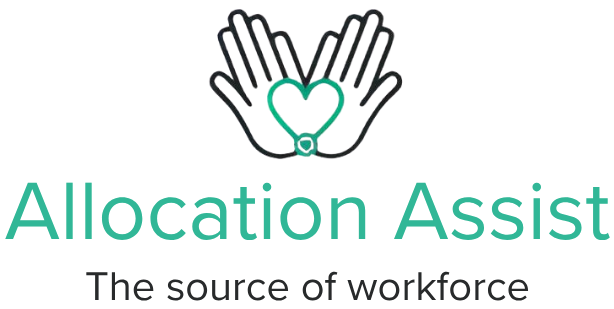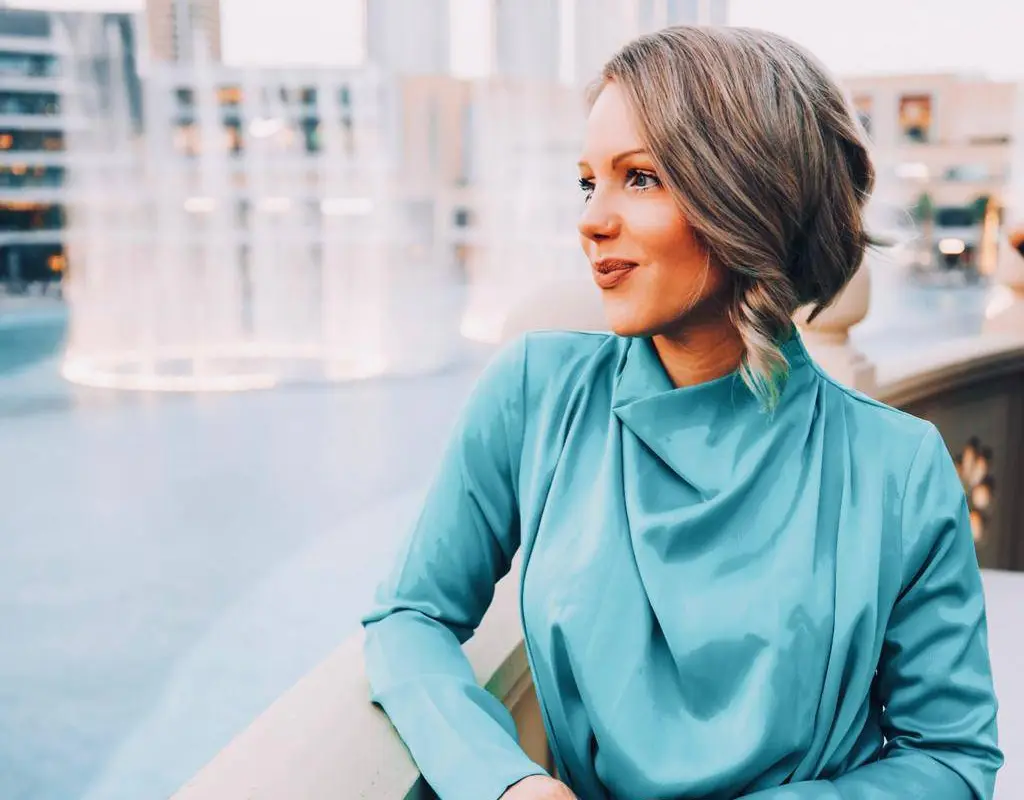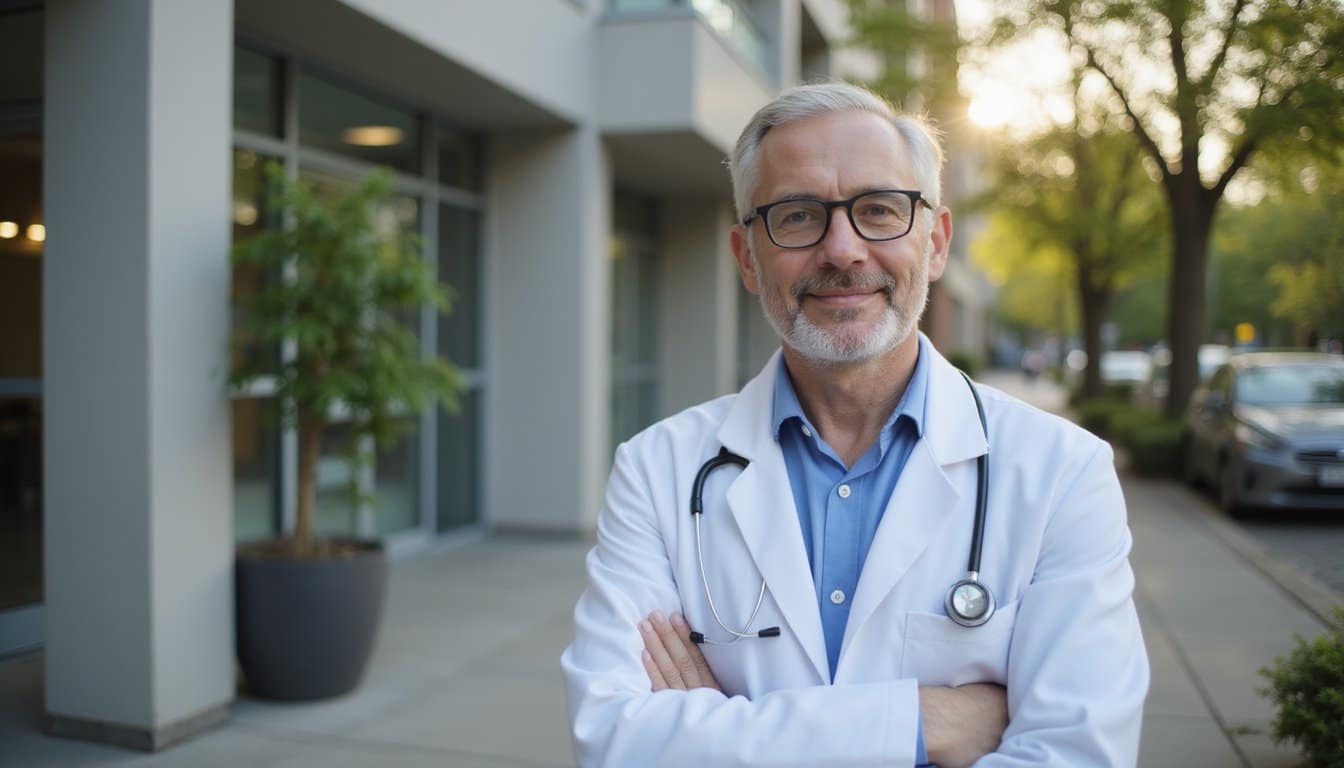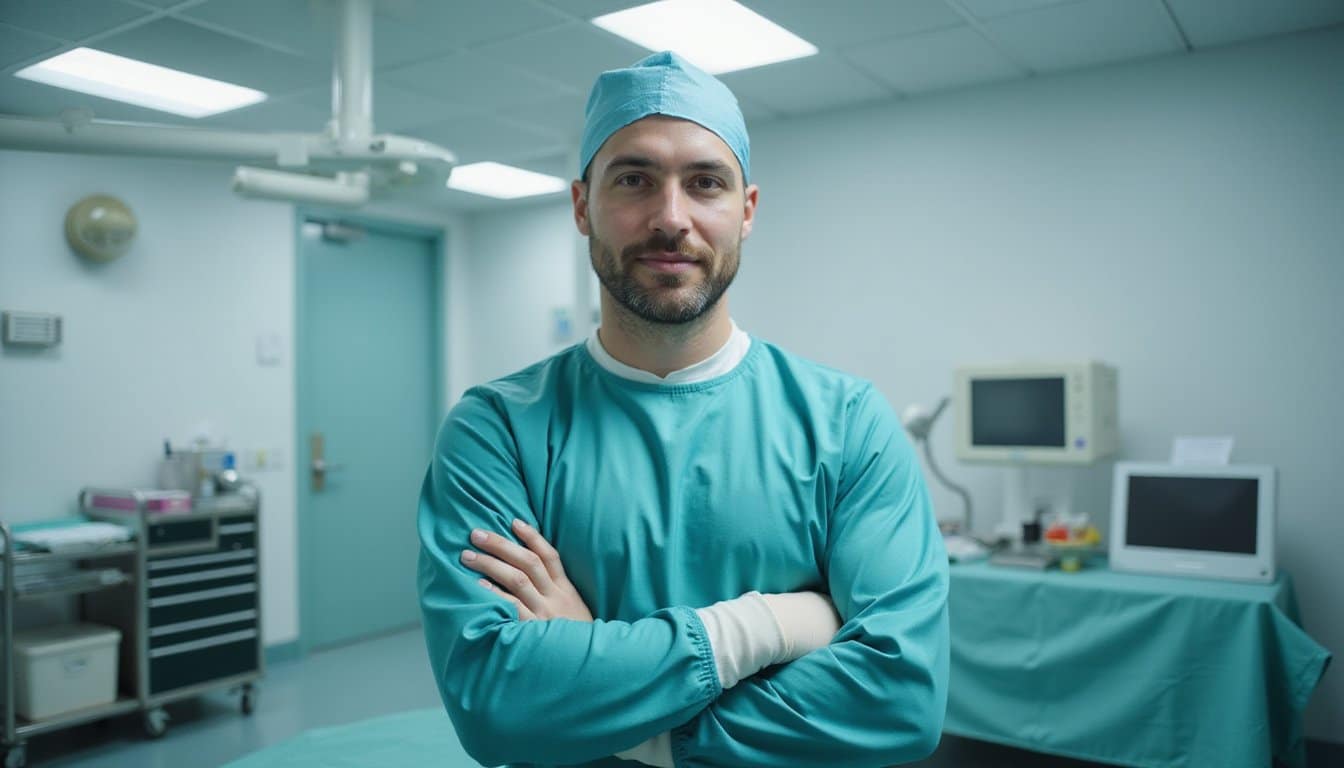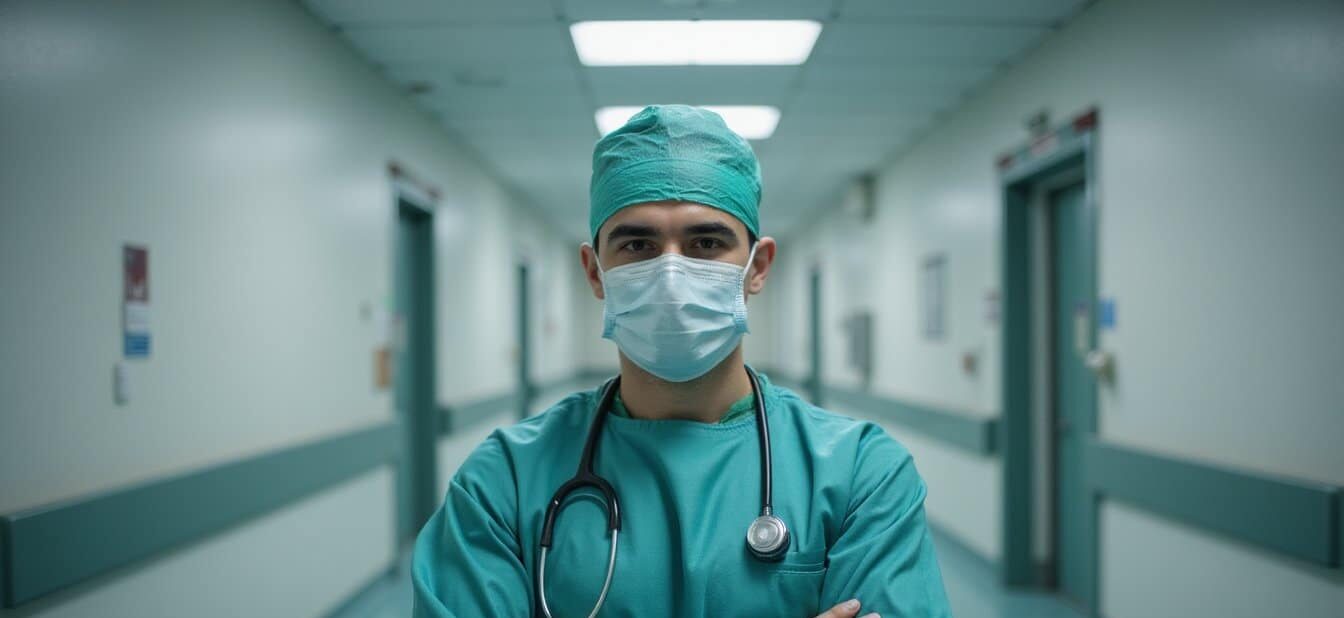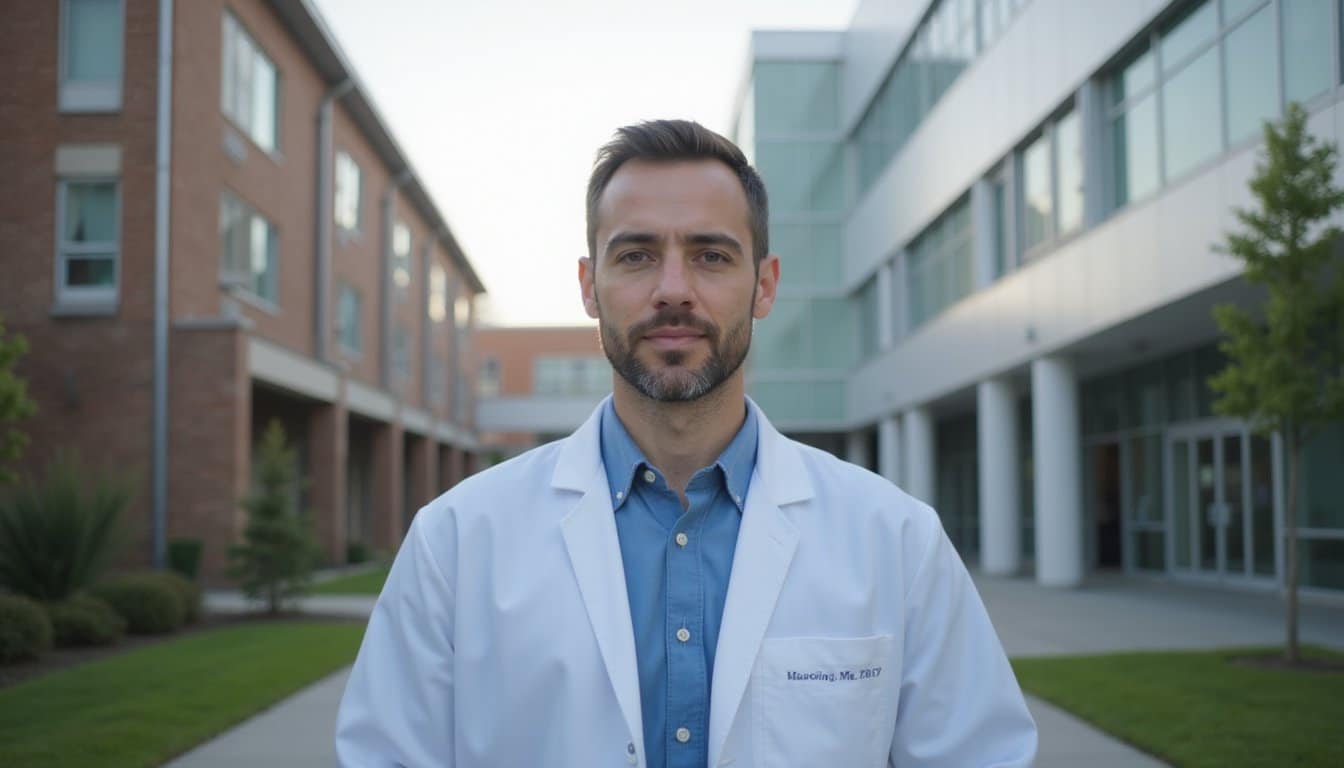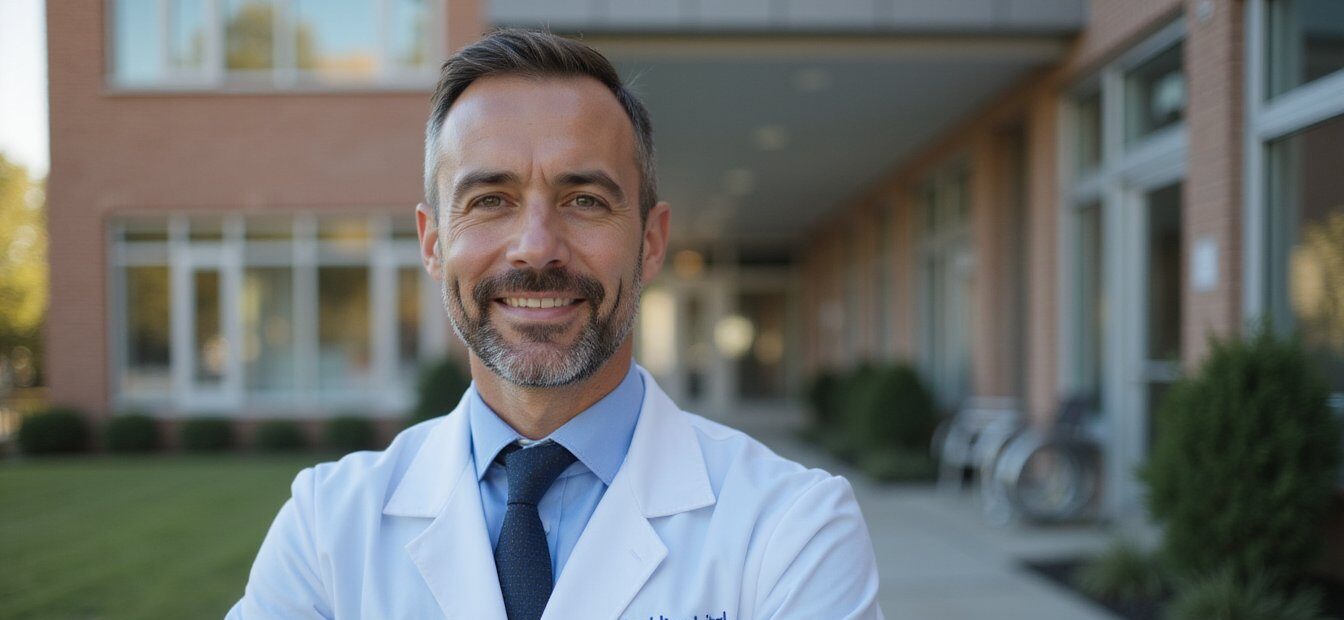Specialist healthcare professionals in Dubai play an essential role in the emirate’s expanding medical sector, with their numbers increasing by 50% since 2019. You’ll find these experts working across critical care, aesthetic medicine, and specialized surgical units, supported by advanced AI technology and state-of-the-art facilities. Dubai’s AED118 billion healthcare infrastructure investment has created diverse opportunities for specialists, from ICU practitioners to cosmetic surgeons. The emerging terrain of Dubai’s healthcare system offers deeper insights into specialist roles and opportunities.
Dubai’s Growing Healthcare Workforce: A Statistical Overview
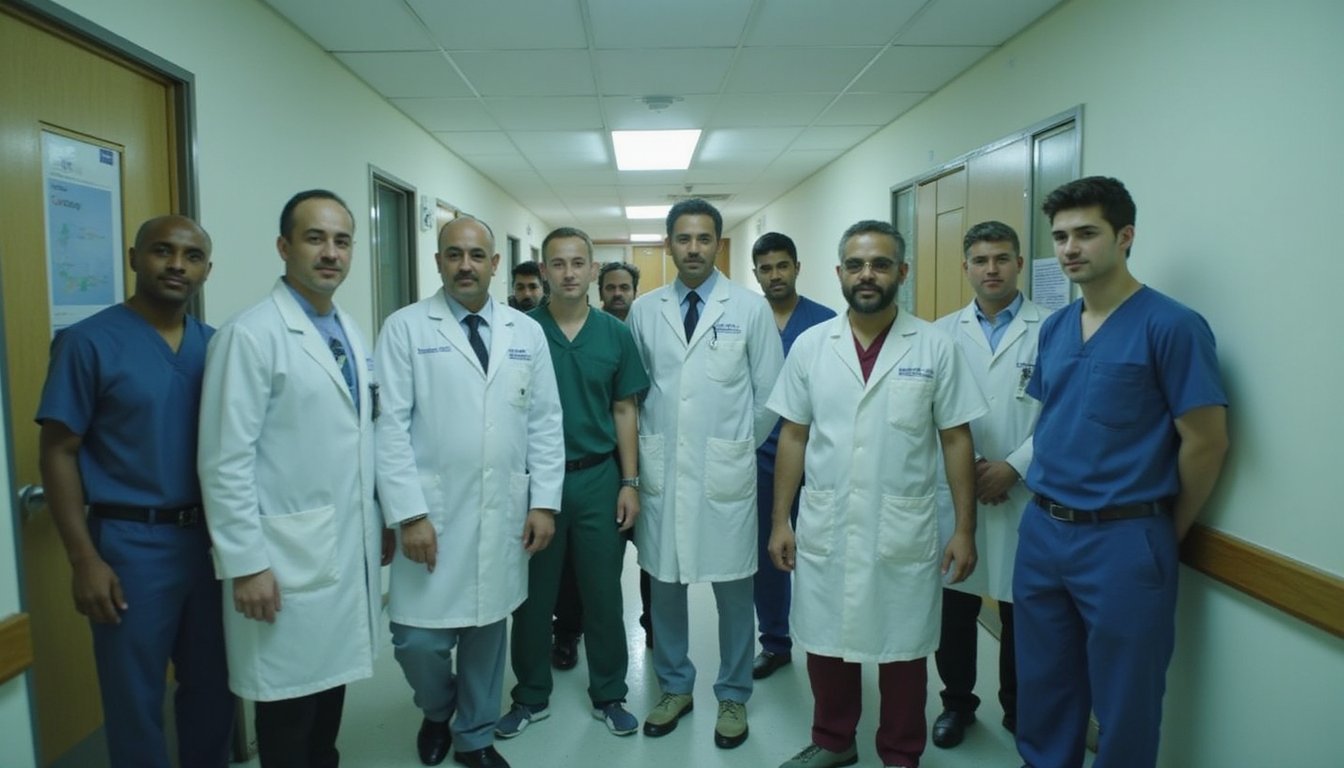
Dubai’s healthcare workforce has undergone remarkable expansion, with the number of professionals surging nearly 50% from 39,548 in 2019 to 58,788 in 2023. Through detailed workforce trends analysis, you’ll find that physicians now comprise 13,082 professionals, while dentists number 4,071. The nursing sector represents the largest segment, with 22,960 registered nurses and midwives. The new Opportunities Platform streamlines recruitment by connecting healthcare facilities directly with qualified professionals.
The sector’s substantial growth is evident in the staggering 904,646 new professional registrations processed by DHA in 2023. While this expansion addresses immediate healthcare staffing challenges, it also positions Dubai as a progressive medical hub. The strategic distribution of professionals across specialties, including 18,407 allied health support staff, guarantees extensive coverage of healthcare needs, reflecting Dubai’s commitment to building a resilient medical workforce. With employer-sponsored insurance now mandatory for private sector employees, healthcare professionals are serving an increasingly insured population. Following global trends seen in countries like Singapore, Dubai is prioritizing the development of preventive care services to address the rising prevalence of chronic diseases in its population.
High-Demand Medical Specialties and Expert Roles
Dubai’s healthcare sector demonstrates surging demand across both critical and aesthetic specialties, with intensive care units expanding rapidly while cosmetic medicine experiences unprecedented growth. You’ll find particular opportunities in critical care roles, where hospitals are actively recruiting specialists for cardiac, trauma, and pediatric intensive care units. The aesthetic medicine field offers exceptional earning potential, with experienced dermatologists commanding salaries exceeding AED 100,000 monthly as Dubai positions itself as a leading destination for cosmetic procedures and medical tourism. Healthcare professionals benefit from a tax-free income environment while practicing in the region. The region’s growing focus on preventive screening programs has created additional opportunities for primary care physicians and internal medicine specialists. The UAE’s ambitious Vision 2030 healthcare initiatives are driving substantial investments in medical infrastructure and professional development.
Critical Care Needs Growing
As healthcare demands intensify across the UAE’s largest metropolis, critical care services face unprecedented growth and change through 2030. You’ll find intensive care expansion driven by Dubai’s aging population and medical tourism surge, with 691,000 medical tourists in 2023 requiring sophisticated care facilities. The market is experiencing significant growth with powered surfaces dominating the ICU equipment landscape. The study’s demand modeling shows projections based on population growth scenarios ranging from 4% to 7.4%.
| Service Area | 2018 Status | 2030 Projection |
|---|---|---|
| ICU Beds | 629 beds | 279 beds |
| Emergency Bays | +158 surplus | -61 deficit |
| Operating Theaters | +13 surplus | -136 deficit |
The growing geriatric care needs and rising cardiovascular disease rates are reshaping critical care delivery. The analysis shows acute beds demand will create a deficit of 1,552 beds by 2030. You’ll need to prepare for significant shifts in specialty services, as procedural care rooms shift from a surplus of 233 to a deficit of 572 by 2030, while the ICU beds market value is projected to reach USD 1.78 million by 2025.
Aesthetic Medicine Drives Demand
The booming medical aesthetics market in Dubai continues to reshape healthcare demands, with projections showing remarkable growth from $402.4 million in 2024 to $736.5 million by 2030. You’ll find a surge in specialized roles across cosmetic dermatology, plastic surgery, and minimally invasive aesthetics, driven by increasing patient demand for safety focused procedures and personalized treatment options. Many practitioners utilize Advanced Charts to track patient outcomes and treatment efficacy. The expanding wellness and beauty culture has created a non-invasive treatment preference among patients seeking aesthetic improvements.
As Dubai attracts patients from 64 countries, specialists must excel in delivering advanced techniques while maintaining stringent safety protocols. You’re seeing this reflected in the rising demand for expert practitioners skilled in popular treatments like Botox, dermal fillers, and laser procedures. With over 1,000 attendees participating in annual aesthetic medicine conferences, the field’s evolution requires healthcare professionals to continuously update their expertise through masterclasses and international congresses, ensuring they meet Dubai’s high standards for clinical excellence.
Infrastructure Development and Technological Integration
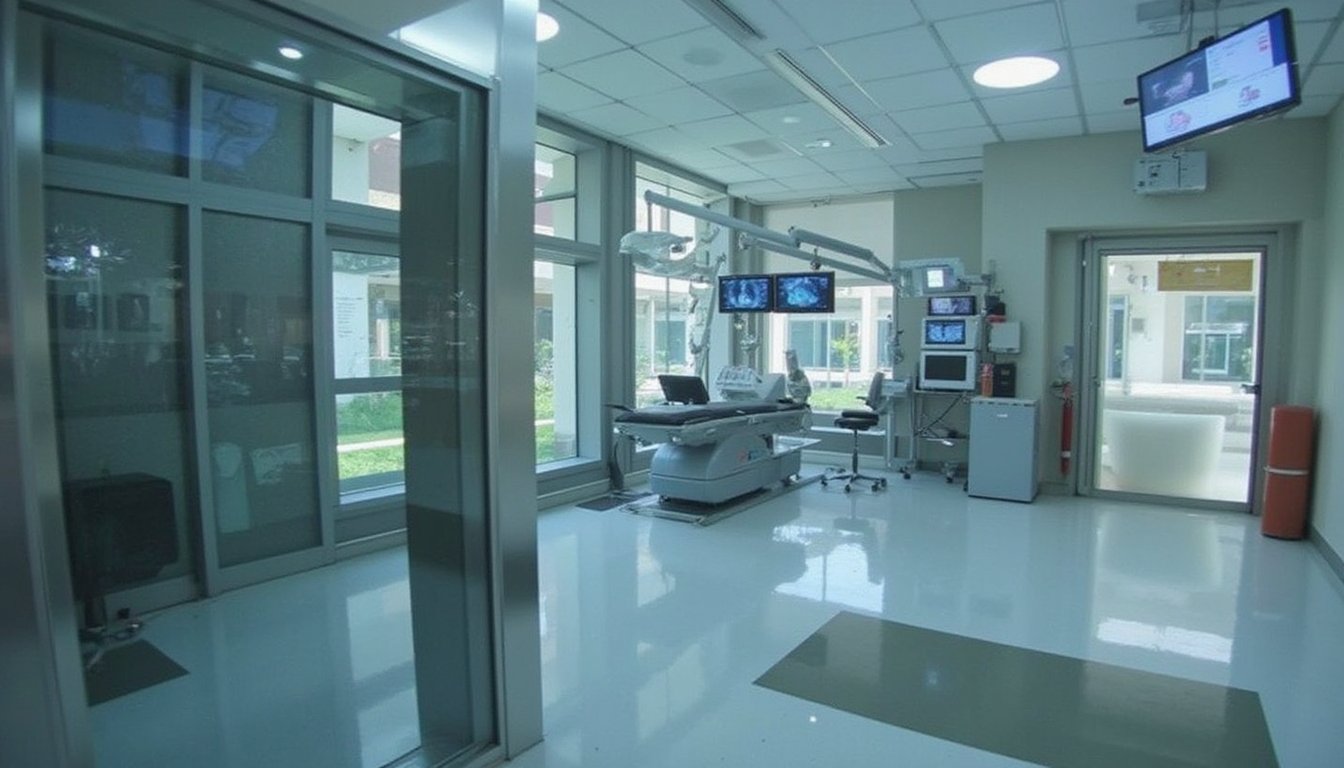
Dubai’s massive AED118 billion healthcare infrastructure investment has transformed the delivery of specialist medical services through state-of-the-art facilities and AI-driven innovations. You’ll find the Dubai Healthcare City’s expansive 1 million square meter healthcare free zone equipped with advanced medical towers, research centers, and seamlessly integrated transportation networks that facilitate accessibility for healthcare professionals and patients alike. The integration of AI technology has yielded impressive results, reducing diagnostic errors by 40% and treatment wait times by 50%, while supporting specialists with virtual health assistants and predictive analytics for bolstered patient care. The development features pedestrian-only zones that enhance the patient experience while promoting sustainable healthcare delivery practices. The establishment of strategic Public-Private Partnerships has attracted leading global healthcare providers, accelerating Dubai’s position as a premier medical tourism destination. The implementation of smart auditing systems for health facility engineering plans ensures optimal design and functionality of medical facilities.
Digital Healthcare Transformation
Modern healthcare in Dubai has undergone a revolutionary digital transformation, driven by strategic initiatives under the National Strategy for Artificial Intelligence 2031. You’ll find AI-powered diagnostics supporting faster clinical decisions, while sturdy data governance safeguards secure handling of patient information across healthcare facilities.
The transformation extends to virtual care services, where you can access telemedicine platforms that have reduced traditional hospital visits by targeting a 30% decrease through UAE Vision 2031. Healthcare cybersecurity has been strengthened through blockchain technology, protecting your medical records with tamper-proof systems and smart contracts. IoT-enabled devices now monitor patient essentials in real-time, while digital twins simulate hospital operations for optimal resource management. This tech integration has created a seamless, efficient healthcare ecosystem that’s revolutionizing patient care delivery in Dubai.
Infrastructure Growth Drives Innovation
Driven by unprecedented expansion, healthcare infrastructure in Dubai has witnessed a remarkable 43% surge in facilities, growing from 3,431 in 2019 to 4,922 in 2023. This extensive infrastructure planning encompasses 53 hospitals, 58 day-care surgery centers, and over 2,300 specialized outpatient clinics, creating an all-encompassing healthcare ecosystem.
You’ll find that technology investments of AED118 billion are transforming these facilities into innovation hubs. The integration of AI has reduced diagnostic errors by 40% and cut treatment wait times in half, while blockchain technology boosts patient data security. Dubai’s healthcare infrastructure now supports cutting-edge developments in 3D printing for prosthetics and organ transplants, positioning the emirate as a global leader in medical innovation. This strategic growth has contributed considerably to Dubai’s GDP, with the health sector leading at 26% in Q1 2025.
Economic Contributions and Healthcare Financing Models
The healthcare sector’s economic footprint in Dubai showcases remarkable growth, with specialist professionals driving AED 118 billion in infrastructure and digital health investments by 2025. You’ll find this expansion reflected in the 150 hospitals and 5,000 healthcare facilities across the UAE, offering substantial returns through specialist-led centers.
Dubai’s healthcare financing demonstrates a dynamic mix of public-private partnership models, with private spending growing at 9.5% annually compared to 4.4% in public expenditure. Healthcare financing diversification is evident in the distribution: mandatory insurance covers 48% of healthcare costs, while government schemes account for 39%. The system’s financial structure supports specialist services through 10+ year PPP agreements, enabling sustained investment and extensive risk-sharing between stakeholders.
Medical Tourism’s Impact on Specialist Care Services
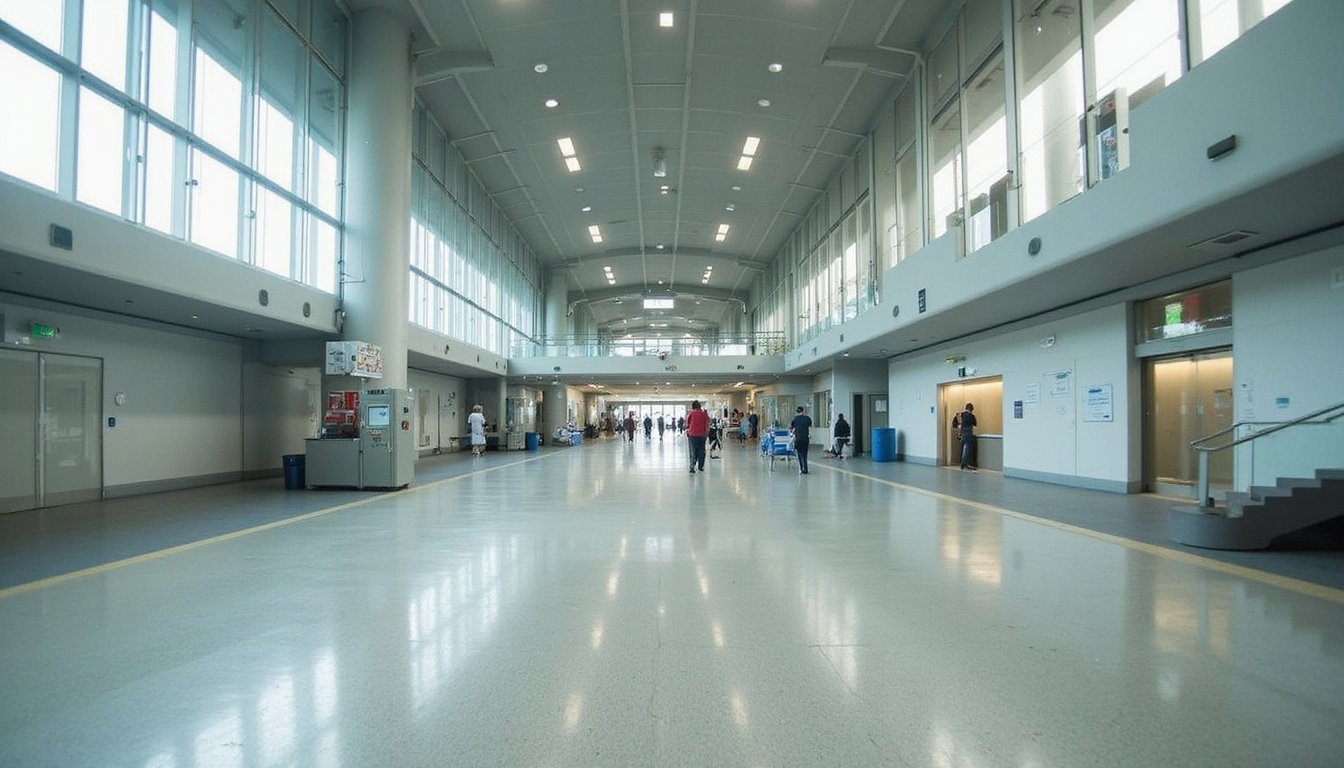
As Dubai’s specialist healthcare sector continues to flourish, medical tourism has emerged as a pivotal force reshaping the emirate’s healthcare terrain, attracting over 674,000 international patients in 2022. This surge has catalyzed physician-led innovation across key specialties, including orthopedics, cardiology, and reproductive health.
You’ll find that the patient-centric experience has evolved through technological integration, with 85% of medical tourists citing advanced technology as their primary draw. Dubai’s specialist facilities now utilize robotic surgery, AI diagnostics, and telemedicine to bolster care delivery. The sector’s growth is particularly evident in women’s health, with female patients comprising 58% of international visits. Strategic pricing models and transparent cost structures have positioned Dubai’s specialists competitively against Western providers while maintaining world-class standards.
Regulatory Framework and Quality Assurance Standards
Dubai’s substantial expansion in specialist healthcare has necessitated thorough regulatory reforms, exemplified by the groundbreaking Unified Licensing system launched in October 2024. You’ll find that this system streamlines licensing requirements, allowing healthcare professionals to practice across all emirates without multiple registrations.
Under Law No. 5 of 2025, you must adhere to standardized evaluation criteria and participate in regular DHA audits to maintain your specialist license. The framework emphasizes patient data protection through strict confidentiality protocols and extensive documentation requirements. You’re now required to implement continuous quality improvement programs and follow updated clinical guidelines that align with international standards.
Non-compliance with these regulations can result in serious consequences, including fines, license suspension, or revocation, ensuring high-quality specialist care delivery throughout Dubai’s healthcare system.
Frequently Asked Questions
What Are the Average Working Hours for Specialist Healthcare Professionals in Dubai?
You’ll typically work between 40-48 hours per week as a specialist healthcare professional in Dubai, though this can vary considerably based on your role and employer. In private practice, you might work as few as 25 hours or up to 85 hours weekly. Your schedule often includes rotating shifts and potential on-call duties, but you’ll receive reasonable compensation while serving a diverse patient population. Public sector positions may offer more flexible arrangements, especially during summer months.
How Do Foreign-Trained Specialists Transfer Their Medical Credentials to Practice in Dubai?
To transfer your medical credentials to Dubai, you’ll need to navigate regulatory processes through the DHA. Start by submitting your medical degree, internship completion, and minimum two years of clinical experience documentation. You must verify your credentials through Dataflow’s Primary Source Verification process and pass the DHA licensing exam. You’ll also need a Good Standing Certificate and proof of English proficiency. The entire process typically takes 3-6 months.
What Language Requirements Exist for Healthcare Specialists Working in Dubai Hospitals?
You’ll need to demonstrate strong English proficiency through recognized language certification like TOEFL (minimum 64 Internet-based), IELTS (Band 5.0), OET (Grade C), or Cambridge Assessment (169+). However, you can be exempted if you’ve completed your medical education in English, practiced in an English-speaking country for one year, or worked in UAE healthcare for three years. Clinical examinations and documentation are conducted in English, while Arabic proficiency is considered beneficial.
Are There Mandatory Continuing Education Requirements for Maintaining Specialist Licenses in Dubai?
Yes, you’ll need to complete continuing education programs to maintain your specialist healthcare license in Dubai. The DHA and MOHAP require proof of Continuing Professional Development (CPD) or Continuing Medical Education (CME) points for mandatory license renewals. If you don’t fulfill these requirements, you’ll face fines or license non-renewal. The specific number of CPD/CME points varies by specialization, and you must submit documentation during your renewal application through the Sheryan system.
What Mental Health Support Services Are Available for Healthcare Specialists in Dubai?
You’ll find extensive mental health support services through Dubai’s 15 specialized clinics and divergent private centers. You can access confidential counseling programs, mental health workshops, and crisis intervention services customized specifically for healthcare professionals. The Lighthouse Arabia and Aspris Wellbeing Centre offer flexible scheduling for therapy sessions, stress management training, and burnout prevention. You’re also covered through integrated primary healthcare centers, with most accepting insurance for treatment.
